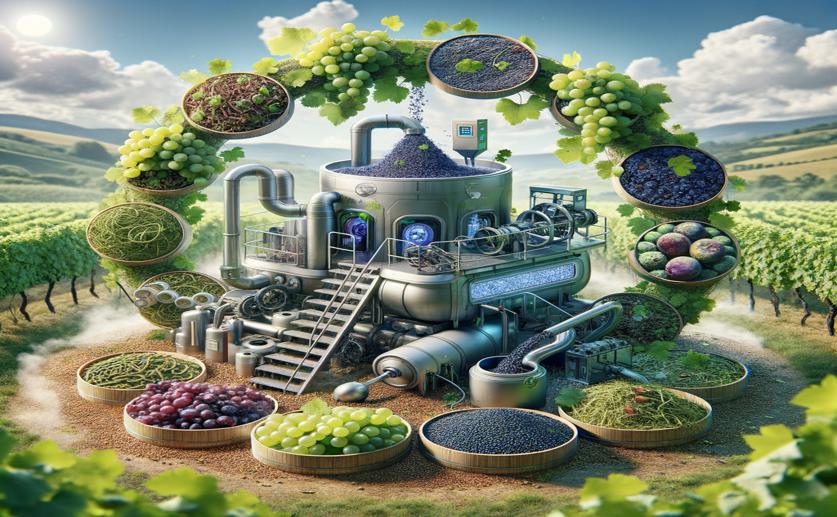
Eco-Friendly Method to Extract Healthy Compounds from Winemaking By-Products
Jim Crocker
14th August, 2024

Image Source: Natural Science News, 2024
Key Findings
- Researchers at Istanbul University-Cerrahpasa developed an eco-friendly method to extract antioxidants from grape seeds using carboxylic acid-based deep eutectic solvents (DESs)
- The optimal extraction conditions involved a 50% water addition to the DES, an 85-second extraction time, and a grape seed mass of 0.1 grams, yielding high phenolic content and antioxidant activity
- This new method is more efficient and sustainable than traditional techniques, supporting environmental conservation and economic viability in the winemaking industry
EnvironmentSustainabilityBiotech
References
Main Study
1) Developing a recovery process for bioactives from discarded by-products of winemaking industry based on multivariate optimization method: Deep eutectic solvents as eco-friendly extraction media.
Published 13th August, 2024
https://doi.org/10.1002/pca.3434
Related Studies
2) Grape (Vitis vinifera L.) Seed Oil: A Functional Food from the Winemaking Industry.
3) Bio-Based Compounds from Grape Seeds: A Biorefinery Approach.
4) Optimization of ultrasound-assisted extraction of phenolic compounds, antioxidants, and anthocyanins from grape (Vitis vinifera) seeds.



 17th July, 2024 | Jenn Hoskins
17th July, 2024 | Jenn Hoskins